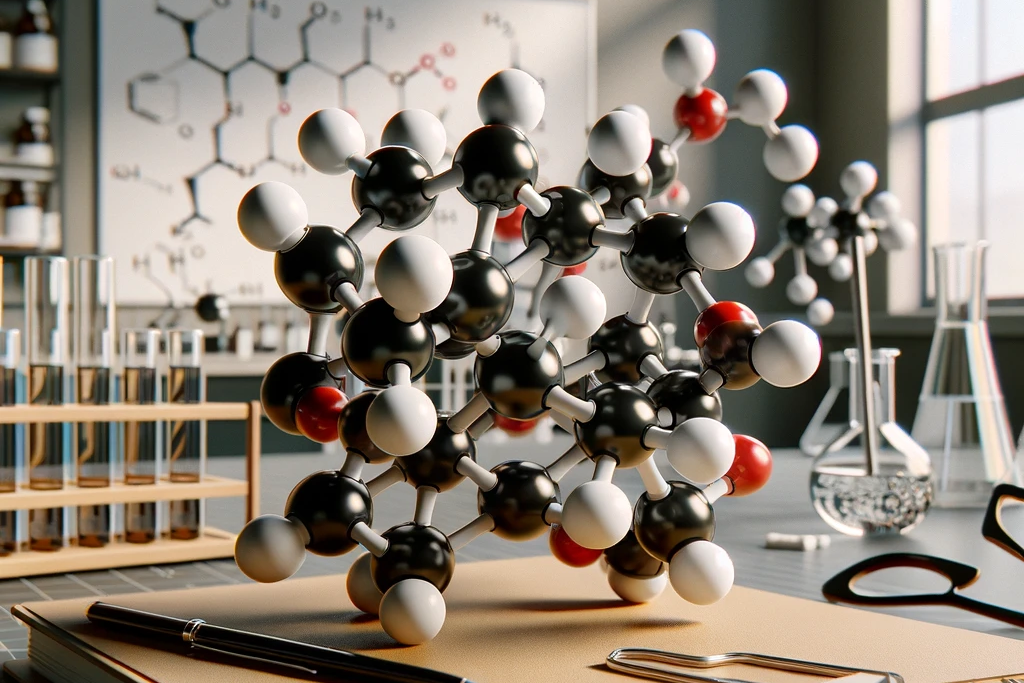Lauric acid

When it comes to the health and well-being of our beloved four-legged friends, we are always on the lookout for ingredients that can improve their quality of life. One such ingredient that comes with both intriguing benefits and certain caveats is lauric acid. Despite its lesser-known presence in animal nutrition, lauric acid holds potential that deserves to be explored. In this article, we dive deep into the world of lauric acid to understand what it is, what benefits it offers dogs and what drawbacks should be considered.
What is lauric acid?
Lauric acid is a medium-chain fatty acid (MCFA) found mainly in coconut oil and to a lesser extent in palm kernel oil and the milk of some mammals. This particular fatty acid has attracted the interest of nutritionists and veterinarians due to its unique chemical structure and resulting properties.
Benefits of lauric acid for dogs
Natural protection against parasites
One of the most outstanding benefits of lauric acid is its ability to act as a natural protection against parasites such as ticks, fleas and even certain types of mites. Studies have shown that lauric acid, when applied topically or incorporated into the diet, can help keep these unwanted guests away without having to resort to harsh chemicals.
Supporting the immune system
Lauric acid has antimicrobial and antiviral properties that can boost the immune system. These properties make it a valuable ingredient, especially in times of increased susceptibility to infections or for generally strengthening the dog's defenses.
Promoting skin and coat health
Regular intake of lauric acid can contribute to improved skin and coat health. Its moisturizing properties can relieve dry skin and provide a shinier, healthier looking coat.
Supporting digestion
Lauric acid can also have positive effects on the digestive system. It helps to promote the growth of beneficial gut bacteria while reducing harmful microorganisms, resulting in a healthier gut flora and improved digestive processes.
Possible disadvantages
Weight gain
As lauric acid is a fatty acid, it contains a considerable amount of calories. Excessive intake can lead to unwanted weight gain, especially in dogs that are prone to obesity or are inactive.
Potential digestive problems
Although lauric acid offers many digestive benefits, it can cause digestive upset such as diarrhea or vomiting in some dogs, especially if introduced too quickly or in high doses.
Uncertainties about long-term effects
The long-term effects of a continuous supply of lauric acid have not yet been fully researched. While short-term benefits are clear, it is important to monitor long-term intake and potential health effects.
Lauric acid can be a valuable addition to your dog's diet, providing a range of health benefits from parasite defense to promoting skin and coat health. However, as with any dietary supplement, it is important to dose your intake carefully and pay attention to your dog's individual needs and reactions. A balanced diet, combined with the informed use of lauric acid, can help to support the health and well-being of your four-legged friend.
If you notice any signs of hypersensitivity or poisoning in your dog, you should see your vet immediately. We are not a substitute for a vet, but we try to be as accurate as possible. Every dog reacts differently and we recommend you get a second opinion or consult your vet if in doubt.
Stay healthy and take good care of your four-legged friend!😊
Similar to Lauric acid
Myristic acid, also known as tetradecanoic acid, is a saturated fatty acid with 14 carbon atoms. It occurs naturally in animal fats and in some vegetable oils, including coconut oil and palm kernel...
Palmitic acid is an organic acid with the chemical formula C16H32O2. It is a saturated fatty acid, i.e. it has no double bonds between the carbon atoms. Palmitic acid is a colorless solid at room...
Stearic acid is a saturated fatty acid with the chemical formula C18H36O2. It is a long-chain fatty acid consisting of 16 or more carbon atoms. Stearic acid is found in many natural sources, such as...
Oleic acid has several positive effects on your dog's health. Firstly, it can reduce the risk of cardiovascular disease by regulating cholesterol levels and dilating blood vessels. Secondly, it can...



